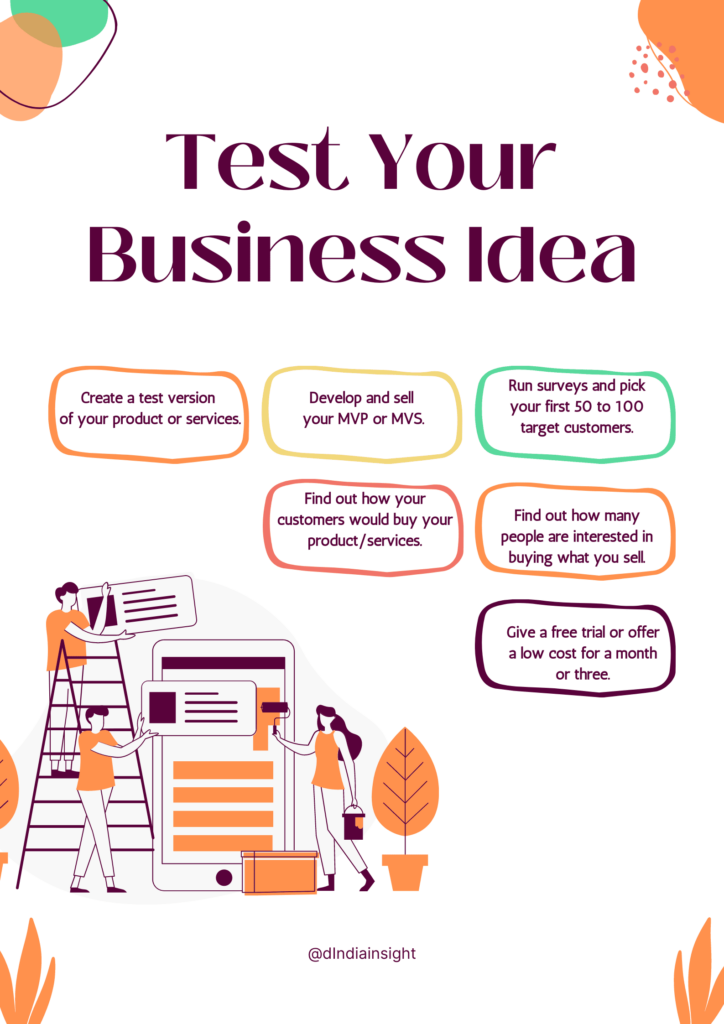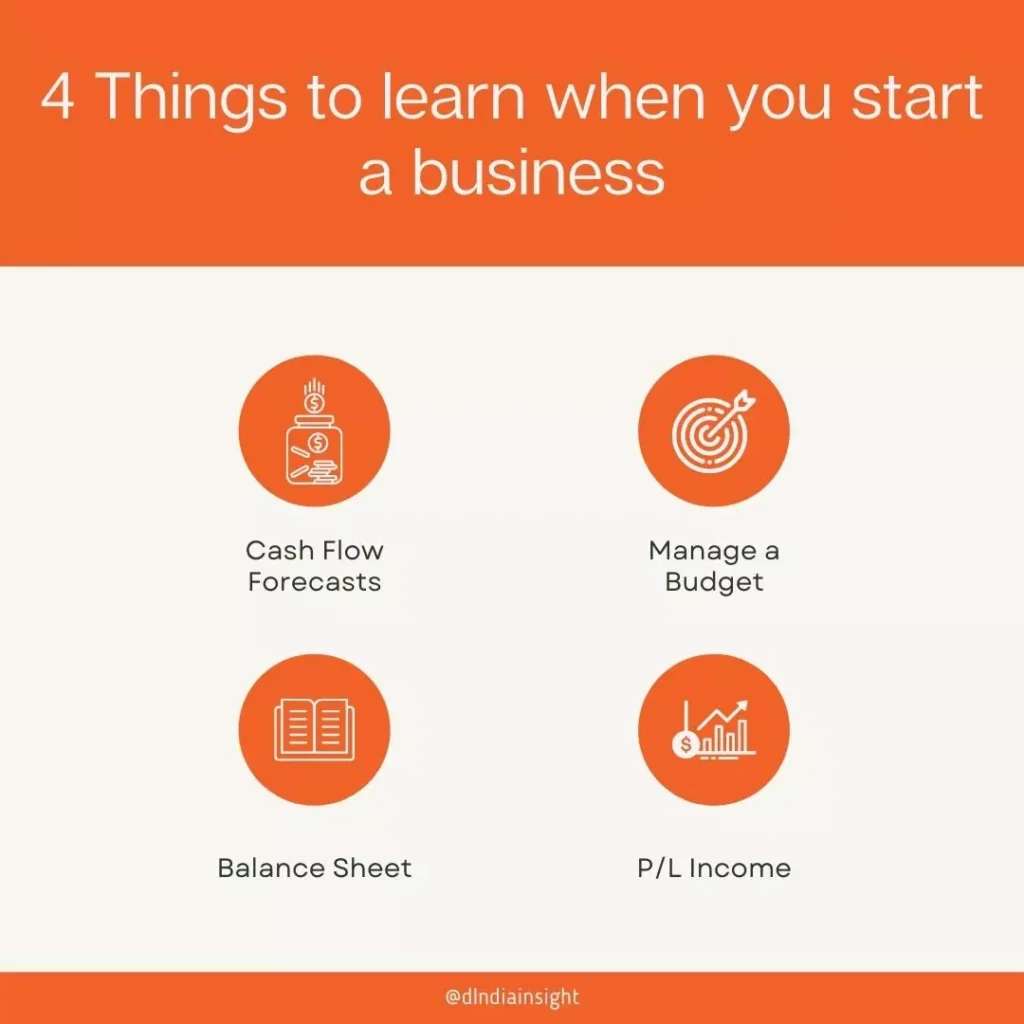There are several responsibilities as you start a business in India. It is essential as a business owner to ensure that you stay on top of the many tasks and responsibilities owed as an entrepreneur, such as those concerning legal business requirements.
Make sure you’ve researched them – research can give you a more vital understanding of what kind of legal requirements come. There are lots of different legal laws that will affect your decision-making. It’s essential to keep track of these things as they can often change or require additional steps to manage correctly.
Starting your own business will require lots of learning and experience, which will surely take time. You can learn from plenty of entrepreneurs and established companies and skip many activities with low success.
These are the helpful steps you should consider when you decide to start a business or already running a business. You can get the complete picture of everything from finding a business idea to legalizing it in India.
The Best Ways to Brainstorm Your New Business Idea
It is a waste to do all the hard work without knowing what you want to do. You don’t need special skills to start a business. All you need is a great idea to solve problems and generate revenue.
Brainstorming isn’t a fancy word. It will help if you practice finding out your business idea. It is a great way to quickly generate new concepts without too much thought. It is a process of thinking about problems and finding solutions. Brainstorming is the beginning stage of the project. Let’s understand this;
There are a lot of articles that teach you how to brainstorm your business idea. And while they might be helpful, I’ve found that it’s best to do it yourself. All you need is a few questions to get the ball rolling.
- What are you good with?
- Can it solve a problem? It could be your hobby, your skills, and more.
- If it isn’t unique, then what’s trending in the same niche?
- What business does admire you in the existing industry?
- Do you have any specific product or service you can provide?
- What are the problems you can solve? It could be anything you might face every day.
- What would you like to do? You can make a list of it.
There are even more questions you can ask yourself. You will notice you have generated a bunch of possibilities you can work with. You’re halfway there! Keep going, and you’ll have a plan in no time.
Here are a few more steps that you may follow to finalize your best business Idea:
- Write down everything you know about your industry.
- Be inspired by a pop culture reference or news item
- Use the SWOT analysis framework to come up with a plan.
- Think about the pain points in your life.
- Use the 3-Ps framework to generate ideas. However, we have more to offer; learn about the 7 Ps of Marketing Mix.
- Use mind mapping software to come up with new ideas.
Suppose you still cannot find your business idea. In that case, you can read news articles, learn about business trends, and research the existing industry to deliver the same service or goods more efficiently.
Research the Market Carefully

Have you found a business concept and want to enter the market? Perhaps your answer is a “yes.”
If so, it is time to do market research and learn more about your industry and target audience. Market research will help you determine whether your business idea is viable and whether you should move forward. If you aren’t sure where to start, follow these steps to acquire the necessary information.
There are two well-known methods: Primary and secondary research methods. You would use any of these methods or combine them. Primary research is a self-conducted research method. It’s organic collected data through interviews, polls, surveys, etc. However, secondary research will involve someone else’s information, whether you collect it from blogs, articles, websites, books, etc. Pick any of these methods or combine them for your goal.
Think about who will benefit from your product or services. Describe your customers in terms of their age, gender, marital status, occupation, earnings, and more. Doing this will help you analyze your customers.
Once you identify your customers, look for ways to engage with them. It could be social media websites, video blogs, etc. You can also conduct a general survey using tools like SurveyMonkey, Google Forms, and more to talk with your customers.
What are their buying habits? You would want to know what and why they buy any product you sell. You may find out the quantity they buy, the features, colors, price, etc.
When one successfully collects the needed data and can formulate an action plan that answers the previously asked questions, one should then analyze the market movements of their competition. When you gain a better understanding of your competitors, you’ll be able to scope out where you need to improve your current products to start a business in India.
Test Your Business Idea Before You Launch It

Have you followed all the steps shared above? If your answer is “Yes,” congratulations. You have completed most of the tasks to start a business with a reasonable probability of success. Wait! Is there a market for your product or services? You might not answer questions right now because you need to test your business idea before starting a business.
Rushing to launch your business without testing it may result in unsatisfied results and a waste of resources. There are multiple ways to test a business idea before starting it; it varies from business to business.
Here are some ways to test your product or business idea before launching it. Following the steps will ensure you invest your time and money in something with the market and strength to grow.
- Create a test version of your product or services.
- Develop and sell your MVP or MVS (minimal viable product or services) to test the market before investing in your business idea.
- Run surveys and pick your first 50 to 100 target customers to test the product or services. Note down the feedback and responses, and ask them about their experience using your product or service for the scope of improvement. It will also help you to understand the potential market for your business.
- Find out how your customers would buy your product/services.
- Find out how many people are interested in buying what you sell. Do this by developing a simple website and creating an account on various social media platforms. Maybe you are selling face cream, so you would set an informative and eye-catching landing page on a meaningful domain name and run multiple campaigns on Instagram and Facebook. Test many ways and platforms and find out which suits your business best.
- Do this testing your business idea, not to make a good profit. Give a free trial or offer a low cost for a month or three to test your business idea while you build quality and trust.
Start a Business with a Foolproof Business Plan

There are benefits you can achieve with the planned business. You can ensure the interest of your investors during the investment process. To increase your business’s probability of success, you must have a business plan, like a doctor following a treatment plan and a soldier following a military operation plan.
A good business plan will satisfy your investors and give you an insight into your business idea. You will have a better certainty of succeeding in the market because you will know what actions to take next. It’s a roadmap of your initiative that will guide you through planning, growing, and running your business idea. It’ll also help you more confidently represent your business to someone like your new business partner to future investors.
You may want to follow the below methods to prepare your business plan:
- Executive Summary: Executive summary statement will include all the basic information about your company. It won’t be a short description of your business, but you may reserve some pages of your business plan document. It must discuss your business goal, purpose, location, and more.
- Business Description: You should give all the necessary information about your business and the problem it may solve. You must also mention the current and future scope, industry, and target market.
- Product Details: This section will outline vital information about your products and services. You can write the complete report and mention how it benefits your customer. Also, note the future improvement and plan of the product and services under this section.
- Competition Analysis: If you plan your business for a higher success probability, you must have good command over the target market. You must analyze the companies that provide similar products and services. It will represent the competition in the market and their weakness and strength to prepare your plan more strategically.
- Sales & Marketing Strategies: You must know how to reach customers and generate good revenue before starting a business in India. Include information about how you will attract and engage your target consumers. Also, it will have information about your marketing campaign, advertising, and other marketing strategies.
Related: Marketing strategy and planning guide for SMEs - Business Operational Planning: So, how are you working on your plan? You may have a clear idea of it in your mind. Let’s write it down in your business plan. Operational planning is a roadmap of how you will work on your project. It will guide you through your active business journey and highlight any risks that may arise in the future. It outlines the daily operational process that will ease your business journey. It defines the responsibilities of each member who is part of your business journey.
- Management Description: The management description will include all the information about the management and how the company is organized. When you add information about who is responsible for what, you tell the investors how your business is structured. The management section outlines how your business is being managed.
- Finance Data: The section projects the future financial plan of your business. Finance data is usually the last section of your business plan, including your business’s financial statement and budgeting information. It is your business’s financial spotlight that will help you manage your future budget and finance of your business.
- Business Appendices: You can easily skip this part of your business plan. But there are many reasons why you should work on this. You can mention any additional information about your business plan in this section. You can use the appendix section of your business plan to give your user a feel of your business idea and the product, services, and more. You can include any information or document in your business appendices section, like; the agreement, licenses, team information, credit history, marketing material, or market history.
Understand the Basics of Finance to Start a Business

Now, you are ready to start a business with a solid business plan. But, to be successful, you must learn some basic finance that will help you understand how money moves in and around and whether the money is secure for long-term investment in a product or a service so that you don’t risk losing any of it. By achieving such a skill, you will improve the business profitability and increase the capability to use funds for long-term benefits.
By developing a business sense, you’re likely to have a deeper understanding of your company and can better oversee its day-to-day activity. As an entrepreneur, it’s crucial that you take the lead on such pursuits because they can help you make money and improve your company’s financial state in the process! After all, that is what we’re here for, right?
Select the Right Business Entity Type
If you start a small business in India, you may continue as a sole proprietor. But, if you are starting it in the long run, you would choose wisely and start a business with the right structure.
Legal Requirements for Starting a Business in India
Understanding this for starting a business in India is essential. When you launch your business, several legal obligations, regulations, and tax laws can be challenging.
Are you planning to visit any tax expert or try it out on various websites to find the answer?
I bet it won’t help you because you don’t have the information. You will have to believe in a sales pitch.
You did all the hard work to start a business and gained the information to do this. You can collect this information and keep things handy when launching your business in India. Let’s help! Get the update right here on the Digital India Insight platform.
